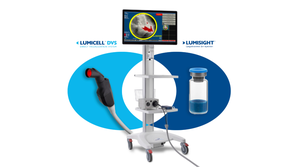By Yair Holtzman, Gleb Gorkhover, and Michael Ganz In its quest to remain the world leader in medtech innovation, the U.S. medical device industry will have to fend off threats like cybersecurity, product commoditization, competition from consumer tech companies, better business environments abroad, and foreign markets.
January 13, 2015
Cybersecurity
Cybersecurity threats have become a growing concern, with numerous hacking attempts aimed at medical device companies over the past year. As a result, the U.S. government has taken notice. The U.S. Department of Homeland Security has more than 20 open investigations into cybersecurity flaws in medical devices and hospital equipment, according to an October 2014 report by Reuters. FDA issued its final guidance on cybersecurity in 2014, providing examples of what reviewers expect to see during premarket review.
Product Commoditization
Medtech companies have been pressured by payers to lower prices on widely available devices. A report by AdvaMed found that prices for artificial knees, pacemakers, and drug-eluting stents dropped by 17%, 26%, and 34%, respectively, in real dollars adjusted by the consumer price index for medical care from 2007 to 2011. Many other device categories also faced price declines of significant magnitude.
As medical devices become more portable—and thus more prevalent—it will be easier for offshore competitors to bring similar products to market faster and at lower prices. U.S. companies need to ensure their devices can be differentiated and demand premium pricing based on their capabilities. One way to accomplish this is through software downloads, which can keep device features and functionality updated without the need for hardware replacement.
Companies must also focus on process improvements and lean manufacturing to become more efficient.
Competition from Consumer Tech
Seeing traditional medtech players slow to adopt mobile, analytics, and cloud solutions, consumer technology firms have sensed an opportunity and are starting to enter the medtech space.
Google is investing in smart contact lenses, and other consumer tech competitors include Apple, AT&T, Canon, Intel, Motorola, Reebok, Qualcomm, Samsung, Sony, and Verizon. Many of these firms are focusing on functionalities such as wireless communication, portability, and seamless integration with other devices to enable more personalized care. Moreover, they have a head start on the medtech industry given their brand recognition and familiarity among consumers.
Better Business Environments Abroad
The United States’ 35% corporate tax rate is not competitive with that of many countries in Europe, including Germany, Switzerland, and Ireland. The higher tax rate has caused several large-profile corporations, including Medtronic, to switch to offshore domiciles.
The United States is also declining in its relative attractiveness in areas including property rights, difficulty and length of time of the approval process, and economic freedom.
Foreign Markets
In Japan, the world’s second-largest medical device market, the government is making an effort to increase the availability and accessibility of foreign products and technologies through initiatives such as a new Pharmaceutical and Medical Device Law (PMDL), which went into effect last year. Although implementation of the PMDL won’t necessarily make Japanese registration easy, it should at least make the process less challenging and more transparent, which should benefit U.S. companies wanting to do business in Japan.
China, the world’s third-largest medical device market, is also one of the world’s fastest-growing. The United States is China’s leading supplier of medical devices, and slow growth in U.S. healthcare spending may encourage U.S. firms to further penetrate the Chinese market. But barriers including challenging regulatory procedures, inconsistent reimbursement policies, complex tendering for purchasing medical devices, and tariffs on China’s most commonly imported devices may continue to hamper expansion in China by U.S. companies.
Israel is also becoming a significant player in medtech innovation thanks to its technological know-how; infrastructure; tax credits, incentives, and grants; and culture of innovation and entrepreneurship. Israel also enjoys a high ranking in ease and speed of regulatory approval. As a result, the acquisition rate of early- to mid-stage Israeli medtech firms has accelerated over the past few years.


OPPORTUNITIES CONCLUSION
[image courtesy of STUART MILES/FREEDIGITALPHOTOS.NET]
You May Also Like


